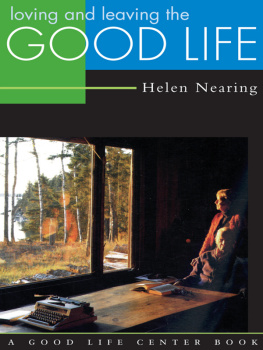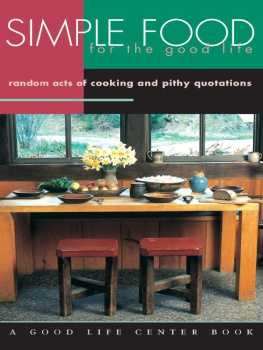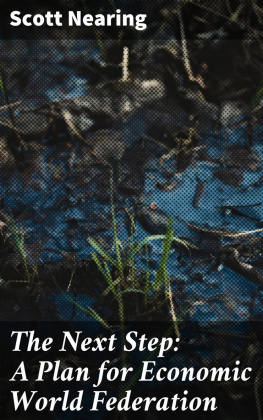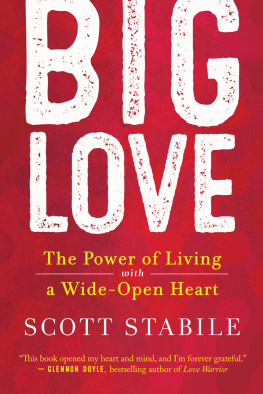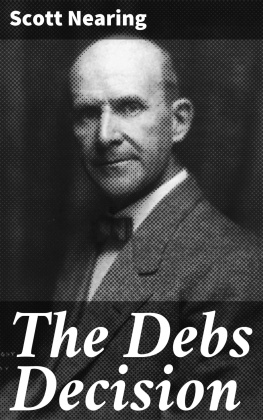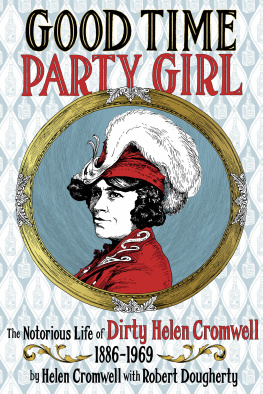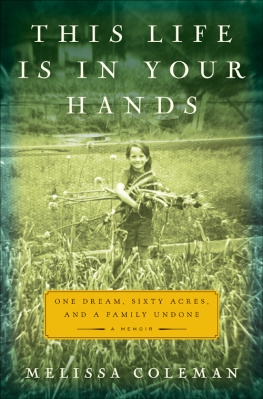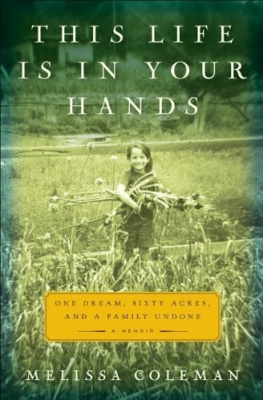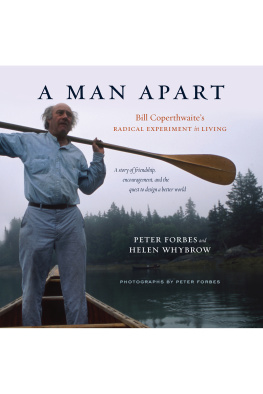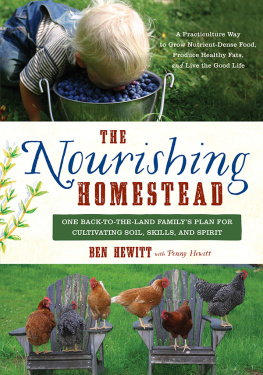IN 1932, at the height of the great Depression, Helen and Scott Nearing moved from their small apartment in New York City to a dilapidated farmhouse in Vermont. For over twenty years, they created fertile, organic gardens, handcrafted stone buildings, and a practice of living sustainably on the land. In 1952, they moved to the Maine coast, where they continued to give practical meaning to the values that are the basis for America's Back to the Land and Simple Living movements.
To continue this vision of "the good life" beyond their own lives, after Scott's death in 1983 and before her own in 1995, Helen arranged for the creation of The Good Life Center, a nonprofit organization based at their homestead Forest Farm, in Harborside, Maine. The Good Life Center was founded between 1995 and 1998 by the Trust for Public Land, a national organization dedicated to conserving land for public benefit and protecting natural and historic resources for future generations. The mission of The Good Life Center is to perpetuate the philosophies and way of life exemplified by two of America's most inspirational practitioners of simple, frugal, and purposeful living.
Building on the Nearing legacy, The Good Life Center supports individual and collective efforts to live sustainably into the future. Guided by the principles of kindness, respect, and compassion in relationships with natural and human communities, The Good Life Center promotes active participation in the advancement of social justice; creative integration of the mind, body, and spirit; and deliberate choice in efforts to live responsibly and harmoniously in an increasingly complicated world.
Volunteers are the foundation of The Good Life Center. Please contact us if you are interested in visiting, or in lending helping hands to various garden, maintenance, and office projects. Financial contributions help keep Forest Farm open, Nearing publications in print, and educational programs reaching outward.
Copyright 1992 by Helen Nearing.
All rights reserved. No part of this publication may
be reproduced, stored in a retrieval system, or transmitted
in any form or by any means, electronic, mechanical, or
photocopying, without the prior permission in writing of
the publisher. Printed in the United States of America by
Chelsea Green Publishing Company, P.O. Box 428,
White River Junction, Vermont 05001.
Printed on recycled paper.
9 10 8
Cover design by Suzanne Church, Blue Door Communications
Cover photo by Joel Sternfeld
Book design by Kate Mueller, Electric Dragon Productions
"Unforgotten" is reprinted by permission of
The Putnam Publishing Group from The Spell of
the Yukon by Robert Service. Copyright 1907, 1916 by
Dodd, Mead & Company, Inc. Used by permission of the
Estate of Robert Service. Excerpt from "The Wind Bloweth Where
It Listeth" is reprinted by permission of GRM Associates, Inc.,
Agents for the Estate of Ida M. Cullen from the book Copper Sun
by Countee Cullen. Copyright 1927 by Harper &
Brothers, renewed by Ida M. Cullen. Excerpts from
The Poems of W. B. Yeats: ANew Edition, edited by
Richard J. Finneran, are reprinted by permission
of Macmillan Publishing Company. Copyright 1928
by Macmillan Publishing Company, renewed
1956 by Georgie Yeats.
Library of Congress Cataloging-in-Publication Data
Nearing, Helen
Loving and leaving the good life / Helen Nearing.
p. cm.
eBook ISBN: 978-1-60358-119-6
1. Nearing, Helen, 1904- 2. Nearing, Scott, 1883-1983.
3. Country lifeNew England. 4. New England
Biography. I. title.
S521.N34 1992 335'.0092dc2 91-44013
[B] CIP
Contents
This is not a work of fiction. Names, characters, places, and incidents are not a product of the author's imagination. Any resemblance to actual events, locales, or to persons, living or dead, is intended and perfectly true to the author's memory of them.
There is no thing that dying, dies forever:
Nothing is soforespent
But it may somehow finally recapture
That first content,
Wrought of the frail and protoplasmic splendor
Of element.
There is no song, once sung, made still forever:
Never such hush profound
But somewhere in the fibers of creation
Under the ground
And over the light of stars in the summer heavens
Makes cosmic sound.
There is no love, once told, that dies completely:
Never such love has grown
But scatters seed producing in its likeness
From zone to zone:
Shaping the destiny of men and angels
In worlds unknown.
poet unknown
How will you manage
To cross alone
The autumn mountain
Which was so hard to get across
Even when we went the two of us together?
Chinese, Seventh Century
W HEN ONE DOOR CLOSES, another opens ... into another room, another space, other happenings. There are many doors to open and close in our lives. Some doors we leave ajar, where we hope and plan to return. Some doors are slammed shut decisively"No more of that," Some are closed regretfully, softly"It was good, but it is over." Departures entail arrivals somewhere else. Closing a door, leaving it behind, means opening onto new vistas and ventures, new possibilities, new incentives.
My life was not over and done with, though a chapter ended, when Scott, comrade and love of fifty-three years, quietly breathed away his life at home in Maine three weeks after his hundredth birthday. He went with dignity, purposefully fasting, after a long and a good life. I had to pick up the reins that had of late been held, though loosely, in his hands.
With Scott gone, I chose to live by myself. I was not lonely; I enjoyed the quiet and solitude, and almost resented the constant calls and visits of solicitous friends. I did not need them. I preferred to be alone if I could not go on living with Scott.
There were many things still to be done. What was to become of the woodland house we had lived in on the banks of Penobscot Bay? Forest Farm was still visited by pilgrims who wanted to see the stone house we had built in our seventies and nineties, the stone-walled garden and greenhouse, and our extensive library. I still entertained almost as many visitors as we had had when Scott was alive and participating. I continued to keep the place as a Good Life Center where people could come to see the wide-ranging files he had kept and the numerous scrapbooks of photographs and letters I had collected after his last birthday and his death day. Here they could obtain his books and sometimes even help maintain the grounds. He would have wanted an open house, not a memorial museum. That is how I would try to keep it as long as I lived.
I rhymed, in a jingle, a release to him and to the house we had built.
Who will reap what we have built here,
In this house and on this land?
You and I will be forgotten
But our work and house will stand.

